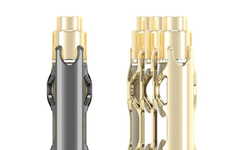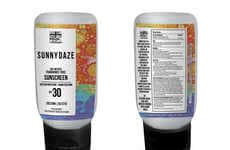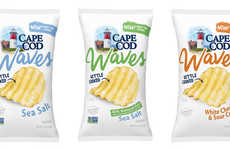



Wasted products are being reused used in attention-grabbing ways
Trend - Brands looking to make a point but still be productive in their goal of spreading awareness for eco consumption are using visceral tactics in the design or sensorial-related aspects of their products to successfully market or sell their products.
Insight - In today's day and age, consumers are increasingly conscious about issues of sustainability, social justice, and the like as they keep informed and engaged through the Internet and social media. This knowledge allows individuals to demand and better advocate for ethical and sustainable solutions. As a result, consumers are raising the bar of their expectations, calling for better management and execution of sustainable practices.
Insight - In today's day and age, consumers are increasingly conscious about issues of sustainability, social justice, and the like as they keep informed and engaged through the Internet and social media. This knowledge allows individuals to demand and better advocate for ethical and sustainable solutions. As a result, consumers are raising the bar of their expectations, calling for better management and execution of sustainable practices.
Workshop Question - How could your brand promote ecological change in a way that better impacts or resonates with consumers?
Trend Themes
1. Visceral Eco-branding - Brands are using visceral design and sensory experiences to raise awareness and sell eco-friendly products.
2. Circular Economy Movement - Designers are creating products using industrial waste to promote the circular economy movement.
3. Food Waste Reduction Technology - Apps are being created to reduce food waste by retailing surplus grocery store goods at discounted rates.
Industry Implications
1. Sustainable Product Design - Designers and brands can utilize visceral eco-branding tactics to design innovative new eco-friendly products.
2. Circular Economy Solutions - Entrepreneurs and sustainability advocates can create new businesses that utilize industrial waste to promote the circular economy movement.
3. Food Waste Reduction - Businesses that aim to reduce food waste and have an environmental impact can invest in or develop technologies that help sell surplus grocery store goods at discounted rates.




































